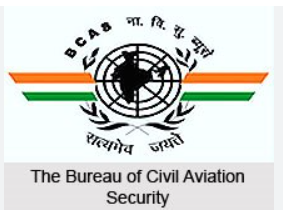Bureau of Civil Aviation Security
The Bureau of Civil Aviation Security (BCAS) is the regulatory authority responsible for ensuring the security of civil aviation in India. Established in 1978, the BCAS functions under the Ministry of Civil Aviation and plays a vital role in safeguarding the nation’s aviation sector against potential threats.
History
The BCAS was formed in the wake of the hijacking of an Indian Airlines flight in September 1976. The incident exposed the vulnerabilities in the aviation security system and prompted the government to establish a dedicated agency to address these concerns. Initially, the BCAS functioned under the Directorate General of Civil Aviation (DGCA) but later gained autonomous status in 1987.
Organizational Structure
The BCAS is headed by a Director General, who is assisted by a team of experienced security professionals. The organization has its headquarters in New Delhi and regional offices in major cities across India, including Mumbai, Kolkata, Chennai, and Hyderabad. The BCAS works in close coordination with various stakeholders, such as airport operators, airlines, and law enforcement agencies, to ensure the effective implementation of security measures.
Responsibilities and Functions
The primary responsibilities and functions of the BCAS include:
- Formulating and implementing aviation security policies and standards in line with national and international requirements.
- Conducting regular security audits and inspections of airports, airlines, and other aviation-related entities to ensure compliance with security regulations.
- Providing training and certification to aviation security personnel, including airport security staff, airline crew, and ground handling staff.
- Developing and maintaining a comprehensive crisis management plan to deal with potential security threats and emergencies.
- Liaising with international aviation security organizations, such as the International Civil Aviation Organization (ICAO), to stay updated on global best practices and emerging threats.
- Conducting background checks and issuing security clearances to individuals working in the aviation sector.
- Overseeing the implementation of advanced security technologies, such as biometric systems, body scanners, and explosive detection systems, at airports across the country.
Achievements and Milestones
Over the years, the BCAS has played a crucial role in enhancing aviation security in India. Some of its notable achievements include:
- Implementing the National Civil Aviation Security Programme (NCASP) in 2011, which laid down comprehensive guidelines for aviation security in the country.
- Conducting regular security audits and inspections of airports and airlines, resulting in significant improvements in security standards.
- Establishing a dedicated Aviation Security Training Institute (ASTI) in Gurgaon to provide specialized training to aviation security personnel.
- Introducing advanced security technologies, such as body scanners and explosive detection systems, at major airports across the country.
- Playing a key role in the successful handling of major events, such as the Commonwealth Games in 2010 and the FIFA U-17 World Cup in 2017, by ensuring the highest standards of aviation security.
Challenges and Future Outlook
Despite its successes, the BCAS faces several challenges in the rapidly evolving aviation security landscape. Some of these challenges include:
- Keeping pace with the growing threat of terrorism and evolving modus operandi of terrorists.
- Ensuring the security of an increasing number of airports and air routes, as the Indian aviation sector continues to expand.
- Adapting to new technologies and security requirements, such as the need for real-time data sharing and analytics.
- Attracting and retaining skilled security professionals in a highly competitive job market.
To address these challenges, the BCAS has been focusing on several initiatives, such as:
- Adopting a risk-based approach to aviation security, which involves the use of intelligence and data analytics to identify and prioritize potential threats.
- Collaborating with international partners to share best practices and intelligence on emerging security threats.
- Investing in advanced training and capacity-building programs for aviation security personnel.
- Promoting the use of technology-driven solutions, such as biometrics and artificial intelligence, to enhance security screening processes.
The Bureau of Civil Aviation Security plays a vital role in safeguarding India’s aviation sector against potential threats. Through its various initiatives and collaborations with stakeholders, the BCAS has been instrumental in enhancing aviation security standards in the country. As the aviation landscape continues to evolve, the BCAS will need to remain agile and proactive in addressing emerging challenges and ensuring the highest levels of security for air travellers in India.


